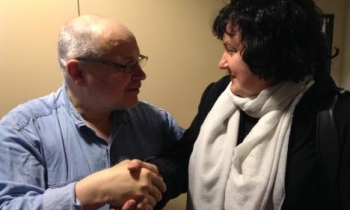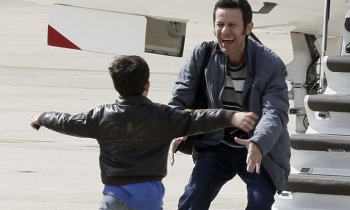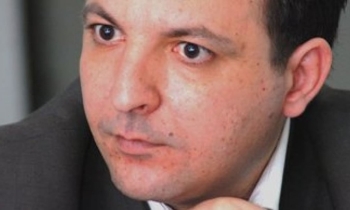An assistant professor of journalism at Western Washington University, whose reporting on a Chicago murder case helped free a man convicted as a teenager of the 1993 crime, does not have to turn over her notes to the police officers accused of framing him, a federal judge in Seattle has ruled, according to Seattle Times.
The details: [Link]
U.S. District Judge Marsha Pechman also ruled that the officers have to pay the attorneys fees for Carolyn Nielsen, who wrote about the case of Thaddeus Jimenez in 1994 while she was a graduate student at the University of Chicago's Medill School of Journalism.
Jimenez, who was 14 when he was convicted of the fatal street shooting of an 18-year-old Chicago man, served 16 years in prison before he was exonerated last year by a group of attorneys who became interested in the case because of Nielsen's reporting. He was freed and Nielsen celebrated his release on a personal blog in which she wrote that she still had her notes and correspondence with Jimenez from the case.
Jimenez sued the Chicago Police Department for false arrest. The attorneys for some of the officers named in the lawsuit learned of Nielsen's blog and subpoenaed her notes, letters from Jimenez and other documents she gathered while reporting on the story.
The officers' lawyers urged Pechman to rule using precedent from the 7th U.S. Circuit Court — which includes Illinois — where the courts have not recognized a federal privilege protecting a journalist's work.
However, Pechman said their argument was "unpersuasive," and she instead applied case law followed in the 9th Circuit — which includes Washington state — that says there is a privilege for people who gather or receive information for publication. That precedent states that a journalist's notes can't be sought until all efforts to obtain the information elsewhere have been exhausted.
Pechman pointed out that the officers' lawyers should have tried other methods — including deposing Nielsen — before issuing the subpoena.
"By failing to depose [Nielsen], defendants failed to exhaust all reasonable alternative sources for the privileged information they seek," Pechman wrote.
The officers also failed to show the information they were seeking was even relevant to their case, she wrote.
In addition to quashing the subpoena, Pechman issued a protective order preventing the officers' attorneys from talking to or obtaining information from Nielsen. Nielsen has said she would not provide the documents to Jimenez's attorneys, either.









